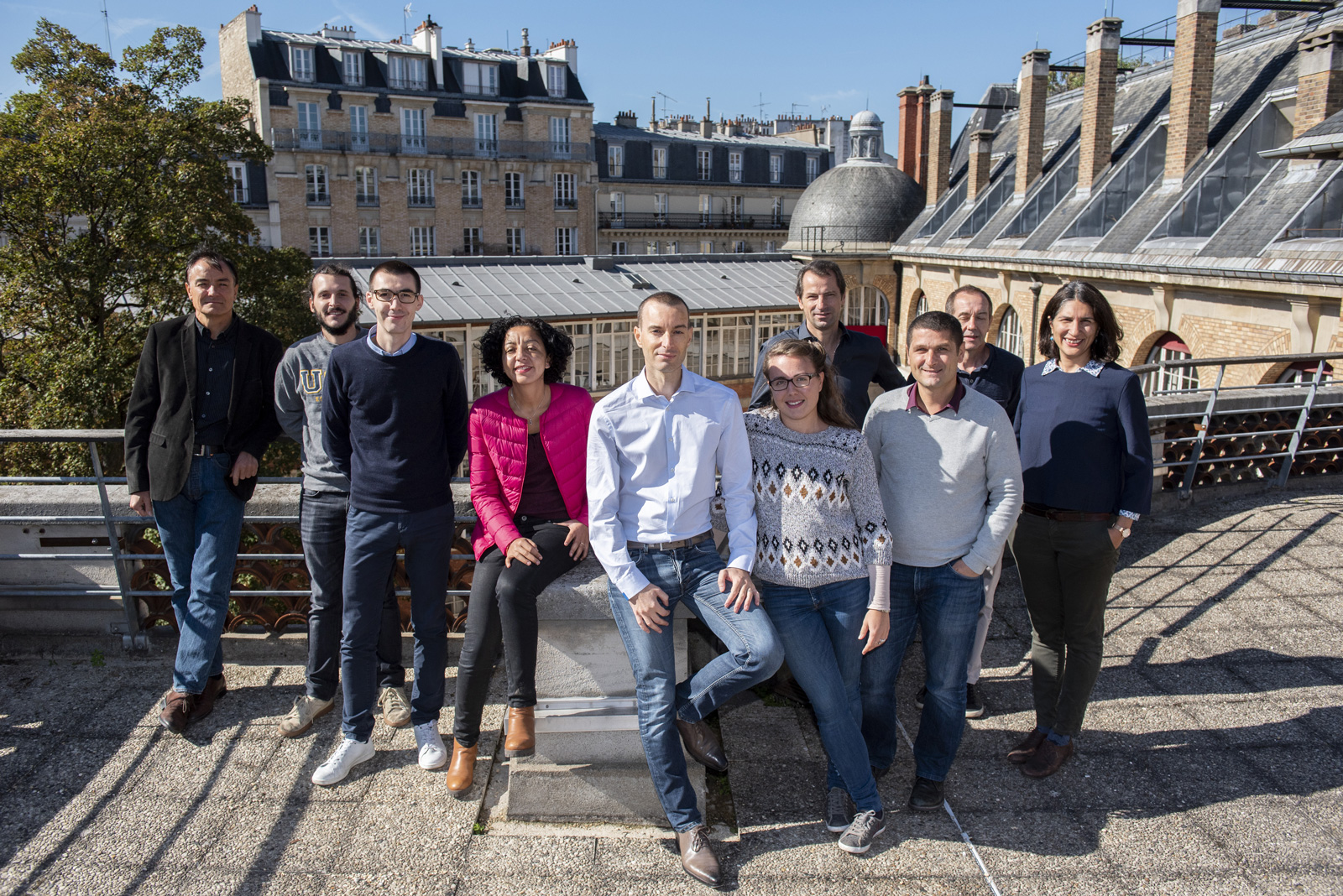
Society and regional strategies Reading time 6 min
Christophe Gouel, the Ebbs and Flows of Economics
Price fluctuations, while indicative of the proper functioning of agricultural markets, can compromise food security if they become too sizeable or unpredictable. Christophe Gouel, a young economist specialised in international trade, has explored this complex global issue for several years with brio. He is the 2018 winner of INRA’s Promising Researcher Award.
Published on 06 December 2018
The prices of commodities such as wheat, rice, corn or soya can fluctuate significantly on international agricultural markets with little or no warning. Volatility and price stabilisation policies have long captured the interest of Christophe Gouel, researcher at the EcoPub Public Economics Unit INRA Île-de-France – Versailles-Grignon, whose expertise on these subjects, obtained over the years, has earned him this year’s Promising Researcher Award.
From commodity price stabilisation policies...
Discreet and reserved, Christophe spoke to us in a muted voice about his interest in economics, which ‘hatched’ during his studies at ENS Cachan, the former name of the Ecole normale supérieure Paris-Saclay. He later specialised in agricultural issues, working on the subject of agricultural price volatility in a context where stable world food markets are confronted with changing policies. This intuition soon became reality. In 2007 and 2008, while a world food crisis shook the markets, Christophe began his doctoral studies on agricultural price dynamics.
Christophe analysed food price stabilisation policies, using economic models to compare policy instruments such as public storage, import and export taxes, and subsidies for low-income consumers. He demonstrated how public storage policies could be adjusted to increase their effectiveness, and efficiently combined with trade policies. He also highlighted the coordination problems inherent in these policies at the international level: a policy mix which improves the situation in a given country can inflict significant damage on trade partners by increasing the price volatility they are confronted with. These negative effects on trade partners are at the heart of certain difficult negotiations at the World Trade Organization; Christophe’s research identifies the reasons for these deadlocks.
Open science in the interest of sharing
Driven by a desire to share with a large audience, Christophe Gouel was committed to providing the scientific community with freeware offering the programmes required to resolve the models developed over the course of his research.
“It’s impossible to study agricultural economics without thinking of INRA.”
Recruited as a researcher at the EcoPub Unit in 2012, C. Gouel, right in his element, speaks enthusiastically about the energy fuelling an institutional ensemble he is proud to be a part of; about the extensive academic freedom and resources provided to him for his work, and about the much-appreciated trust he has been granted by the people who helped him start off and have since become colleagues: people like Jean-Christophe Bureau, Sébastien Jean and Jean-Marc Bourgeon.
… to global food security
Christophe continues his work on price stabilisation policies with a focus on understanding the causes behind commodity price variations on global markets, but has also expanded the scope of his research. He now concentrates on the impact of change (e.g. climate change, nutritional and demographic trends) on world food security – issues which are closely related to the GloFoods ‘Transitions to global food security’ metaprogramme piloted by INRA and CIRAD.
In early 2017, he travelled to the U.S., where he had the opportunity to source the vast expertise of the International Food Policy Research Institute (IFPRI) on global food security issues to learn more about the role of international trade in adapting to climate change and the degree to which international trade limits the economic losses linked to yield reductions by facilitating the re-structuring of farms at the global level.
Christophe was on the road in the U.S. enjoying some free time with family when he received the call from INRA President Philippe Mauguin informing him he had won the Promising Researcher Award. It’s a road trip he won’t forget any time soon!

What's next?
Christophe Gouel sees a bright future ahead, with a hint of price volatility and a pinch of global food security while working in other fields where the wind takes him: agronomy, physics, livestock farming and more economics, as well as other projects he is developing in partnership with the CLAND institut de convergence.
In between the INRA Awards ceremony, renewed opportunities and new projects, Christophe finds time to fondly remember the short break he took in October to go climbing in the south of France, a long-time passion he enjoys with his family, despite his self-identification as an ‘eternal novice’.
CV in brief
38 years old, married, two children
Career
- 2012 – present: Research Scientist, INRA
- 2011 – 2012 Consultant, World Bank (USA)
- 2008 – 2016 Research Fellow, CEPII (Centre d’études prospectives et d'informations internationales (France)
- 2006 – 2008 Economist, CEPII
Education
- 2016 – Accreditation to supervise research (Université Paris 1 Panthéon-Sorbonne)
- 2011 – Doctorate in Economics (Ecole Polytechnique)
- 2006 – French National School of Forestry
- 2004 – Master’s degree in Environmental Economics Université Paris Ouest)
Awards and distinctions
- 2018 – INRA Promising Researcher Award
- 2015 – European Association of Agricultural Economists Award
Find out more
Gouel C. and Guimbard H. (2018) Nutrition Transition and the Structure of Global Food Demand. American Journal of Agricultural Economics. Published: 19 June 2018, https://doi.org/10.1093/ajae/aay030
Gouel C. and Legrand N. (2017) Estimating the Competitive Storage Model with Trending Commodity Prices. Journal of Applied Econometrics, 32, 744.
Gouel C. (2016) Trade Policy Coordination and Food Price Volatility. American Journal of Agricultural Economics, 98, 1018.
Gouel C. et al. (2016) Managing Food Price Volatility in a Large Open Country: The Case of Wheat in India. Oxford Economic Papers, 68, 811.
